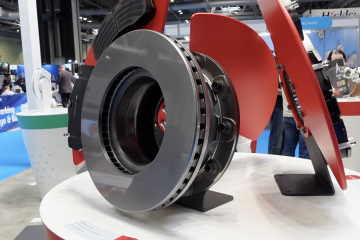An investigation by consumer motoring publication What Car? has found that one in 10 cars that passed their MOT should not have done so, according to results of the annual MOT Compliance Survey.
In addition, the magazine states that 2% of cars that failed their MOT should have actually passed. The figures, based on the findings of a Driver and Vehicle Standards Agency (DVSA) report, suggest that as many as 1.29 million vehicles being driven on UK roads could have potentially dangerous defects.
As part of its 2021-2022 MOT Compliance Survey, obtained by the publication under a Freedom of Information request, a team of DVSA expert examiners retested a randomly selected sample of 1,732 vehicles at the sites where the vehicles were originally assessed.
The industry body runs these annual inspections to ensure the correct test standards are being applied. In the latest report examiners disagreed with the MOT outcome in 12%of instances.
The numbers are slightly better than those of the 2019-2020 MOT Compliance Survey, which saw 13.5% of cars that should have failed were given a pass, with 3% of cars failing when they should have passed. There is no data for 2020-2021 due to the COVID-19 pandemic.
The data from the MOT Compliance Survey also showed that three or more fail worthy defects were found on 52% of the vehicles that MOT testers had incorrectly allowed to pass. Of that same group, 24% had two incorrectly diagnosed defects, and 25% had one wrongly categorised fault.
Common faults in MOT Compliance Survey
The most commonly overlooked fail items, according to the MOT study, were tyres and brakes. The magazine states that MOT testers did not apply the correct test standard relating to tyre conditions in 59% of cases, or 734 of the cars examined. Defects with braking systems were incorrectly diagnosed in 58% of cases, making up 660 cars in the study.
Suspension defects were found in 642 of the vehicles that passed their initial test, while light, reflector and electrical issues were present in 422 cases.
The DVSA took action against many of the garages that were found to not be sticking to the correct MOT test standards. It instigated disciplinary actions against 27 garages and wrote 164 advisory warning letters to others. However, not all MOT test errors resulted in disciplinary outcomes, and no action was taken in cases where the examiners believed the errors to be marginal.
Speaking to What Car? a DVSA spokesperson stated: “Our MOT Compliance Survey is an essential tool helping us to make our roads among the safest in Europe. The vast majority of MOT testers carry out testing to the highest standards.
“We are delighted to see that standards have improved since the last report. This underlines the importance of DVSA taking action on the survey results and supporting testers with new digital tools, as well as demonstrating the hard work of MOT testers.”



